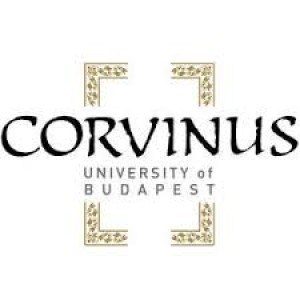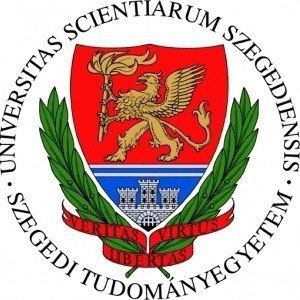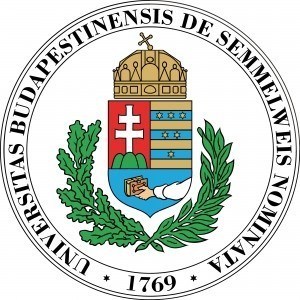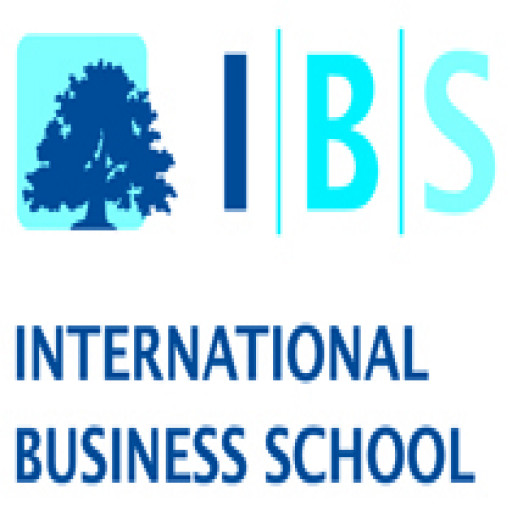Photos of university / #unicorvinus
The International Economy and Business program at Corvinus University of Budapest offers students a comprehensive education in the fundamental principles of global economic and business environments. Designed for those who aspire to pursue careers in international trade, finance, consulting, or multinational corporations, this program provides a thorough understanding of the complexities and dynamics of the international economy. Students will explore various topics including international financial markets, economic policy, global trade agreements, international marketing strategies, and cross-cultural management. The curriculum combines rigorous theoretical coursework with practical applications, enabling students to analyze real-world economic issues and develop strategic solutions.
Throughout the program, students are encouraged to gain international perspective through case studies, project work, and possibly study-abroad opportunities. English is the primary language of instruction, ensuring that graduates are well-equipped to operate in diverse global settings. Faculty members are experienced professionals and researchers dedicated to providing high-quality education and mentorship. The program emphasizes the development of critical thinking, analytical skills, and global awareness, which are essential for navigating the complexities of international economic relationships and business practices.
By completing this program, graduates will be prepared for a variety of roles in international organizations, governmental agencies, financial institutions, and private sector companies. They will possess a deep understanding of international economic policies, trade regulations, and contemporary issues such as globalization, digital transformation, and economic development. The program also aims to cultivate entrepreneurial mindset, leadership skills, and ethical considerations necessary to succeed in a competitive international environment. With its strategic location and strong links with industry partners, Corvinus University provides students with valuable networking opportunities and access to the latest insights in the field of international economy and business.
(1) International Economic Analysis Specialization
The International Economic Analysis specialization of the M.A. in International Economy and Business program provides a thorough study and understanding of the world economy, focusing on the economic, but also the political foundations and characteristics of the micro (i.e. companies), macro (the state) and international (NGOs and international institutions) level of interactions. A special emphasis is devoted to the strengthening of intellectual abilities and analytical skills of students widely applicable in both the business and the public sectors. The aim of the specialization is to make students equipped with all the relevant concepts and methods of and also the necessary tool-kits for analyzing trade, development, management, etc. in a comparative perspective. Policy areas of a wide range from development policy to social policy will be reflected upon. With a Master’s diploma offering a specialization in International Economic Analysis, students will find prosperous career opportunities at multinational corporations, the banking sector, development agencies, NGOs and also international institutions and organizations such as the United Nations for instance.
The specialization has been strongly built upon the already acquired knowledge of the first year. Each of the six specialization courses addresses both the general and the particular aspects of the world economy and the international community. The spirit of the courses are strongly embedded in the international political economy paradigm – that is, the specialization does not require mathematical or statistical skills, instead, it aims at putting together several disciplines with the aim of gaining a comprehensive understanding of the work of multinational companies, international institutions and governments.
(2) Comparative European Economic and Business Studies Specialization
The Comparative European Economic and Business Studies Specialization (shortly: EU Specialization) of the M.A. in International Economy and Business program gives a comprehensive overview on European integration issues. The courses of the specialization focus on macro and micro economic levels of integration – the regulatory frameworks, the implementation and business-level activities are also analyzed. The students will get clear background knowledge on how the EU policies are working in practice. We will analyze the decision making processes within the European Union: the role of different EU institutions and member states’ actors will be highlighted. During the one year specialization we will concentrate on the recent processes and the actual problems in the European Union.
The EU specialization explains the objectives and operation of EU level policies. In each case we analyze the regulatory background, the implementation in practice, and evaluate impacts on economic policies and business activities. Especially, we focus on those issues which can influence the competitiveness of the European economy (like Lisbon Strategy, technological gap and R&D issues, knowledge-based economy and society, employment problems, social policy issues). We particularly concentrate on regional development issues – both at regulatory and practical (project) levels. We analyze the impacts of Structural Funds and Cohesion Fund supports on development of the backward regions. Through case studies, we gain some experience from the catching up process of the old less developed EU member states. We analyze the preconditions of successful absorption of EU transfers, like institutional background and budgetary issues. Our aim is to research and understand the methodology of efficiency measurement of the cohesion policy system of the EU, and to analyze the development policy and practice of a member state or EU region.
(3) International Development Specialization
This specialization has the focus, on the one hand, on developing countries, their problems and challenges (as for instance, poverty, starvation and environmental damages), and, on the other hand, on basic theories, approaches and concepts of development (as for instance, underdevelopment, growth, industrialization, etc.). Besides giving students a firm theoretical background, the specialization puts emphasis on the analysis and the evaluation of the relations of economy and social policy, on the comprehensive introduction of the process of globalization, as well as on the description of international organizations that play an influential role in development policy. Besides developing the analytical skills of students, the specialization gives room to illustrate the historical and institutional context of development. The specialization further stresses the importance of paying attention to the dimensions of human worship, freedom and welfare and to the human-centered approach to development.
Successful completion of the specialization gives students expertise to build a career in the private sector (first of all, as a consultant), as well as in the public sector, in government offices (for instance, at the Development Agency), in intergovernmental offices, and at international organizations (as for instance, at FAO, UNICEF, UNCTAD and the WTO) and at non-governmental organizations (NGOs). The specialization prepares students for doctoral studies as well.
1, A Bachelor’s degree
Applicants are required to present an authenticated copy of at least a BA/BSc degree both in the original language and in English, as well as an official copy of the transcript of their studies. Graduating students need to send their certificates after the defense of the thesis work.
2, Successful entrance exam
3, Language requirements
The English-language skills of applicants are tested both in the written and the oral parts of the entrance exam and, therefore, a certificate proving the English-language skills of the applicants is not required to be enclosed in the application package.
Entrance exams to the Master’s Programs consist of the following two parts:
a. Written part: An essay to be sent via E-mail
Applicants are expected to do a case-study analysis on general social and economic topics so that they provide an independent, logically founded and professionally defendable standpoint on the issue in question. Applicants in the analysis are expected to use concepts and methods of the economic literature profoundly. The purpose is to see how well-informed applicants are in political and international issues, as well as to measure their theoretical knowledge and analytic skills.
b. Oral part: A telephone or Skype interview
The purpose of the interview is to measure applicants’ verbal competences, as well as to learn about their motivation for joining a program. Interviews are evaluated, among others, on the basis of how successful applicants are in communicating their ideas, what career plans they have in mind or how they think they can benefit from the Master’s program in order to meet their future goals.
Financing for the International Economy and Business program at Corvinus University of Budapest is primarily composed of tuition fees, which vary depending on the student’s nationality and study level. For international students, the tuition fee is generally higher than for domestic students, reflecting the university's policy to support internationalization and international student mobility. The tuition fee for Bachelor’s programs at Corvinus University of Budapest in Business and Economics fields typically ranges from approximately 6,000 to 9,000 EUR per year. This fee covers access to all academic resources, participation in lectures, seminars, and workshops, as well as access to university facilities including libraries and study centers.
In addition to tuition fees, students may incur costs for health insurance, accommodation, and living expenses in Budapest, which are important components of the overall financing considerations. The university offers various scholarship options for both domestic and international students. These scholarships are awarded based on academic achievement, financial need, or specific criteria laid out by the university or external donors. Examples include merit-based scholarships, need-based grants, and specific scholarships for students from certain countries or regions.
Corvinus University also participates in mobility programs, such as Erasmus+, which can provide students with grants to offset travel expenses and facilitate studies abroad. These grants are competitive and are awarded based on application and eligibility criteria. Additionally, some students finance their studies through student loans, either from their home countries or through international lenders that support international students studying abroad.
Students are encouraged to seek part-time work opportunities in Budapest to supplement their income during their studies. The university’s Career Services department consults and guides students about legal regulations concerning student employment, often facilitating connections with local companies and organisations.
Overall, financing the International Economy and Business program at Corvinus University of Budapest requires careful planning. While tuition fees represent the main expenditure, students should consider living expenses, insurance, and material costs. For many students, a combination of scholarships, grants, personal savings, and part-time employment provides the necessary funding to successfully complete their studies. The university actively provides information and support regarding funding options to ensure students can manage their finances effectively throughout their academic journey.
The International Economy and Business program at Corvinus University of Budapest offers a comprehensive curriculum designed to equip students with a thorough understanding of global economic systems, international trade, and business practices. This program emphasizes the development of analytical skills and practical knowledge necessary for thriving in the global marketplace. Students gain insights into macroeconomic and microeconomic theories, international financial markets, economic policy analysis, and business strategy within a multinational context. The program also covers topics such as European integration, international marketing, cross-cultural management, and sustainable economic development, preparing graduates for diverse careers in international organizations, multinational corporations, consulting firms, or government agencies.
Students have the opportunity to participate in internships, exchange programs, and collaborative projects with international partners, which enhance their practical experience and global networking capabilities. The program is taught by experienced faculty members who combine academic expertise with industry insights, ensuring that students are well-prepared for real-world challenges. The curriculum is regularly updated to reflect current economic trends and policy changes, fostering a dynamic learning environment. Graduates of the program are equipped with language skills, critical thinking abilities, and a solid understanding of international business operations, enabling them to effectively analyze and respond to complex economic issues on a global scale.
Corvinus University’s strong ties with international institutions and its strategic location in Budapest provide students with unique opportunities for engagement and professional development. The program is ideal for those interested in pursuing careers in international economics, global business, or economic policy-making, offering a rigorous academic foundation combined with practical skills necessary for success in a competitive global environment.




